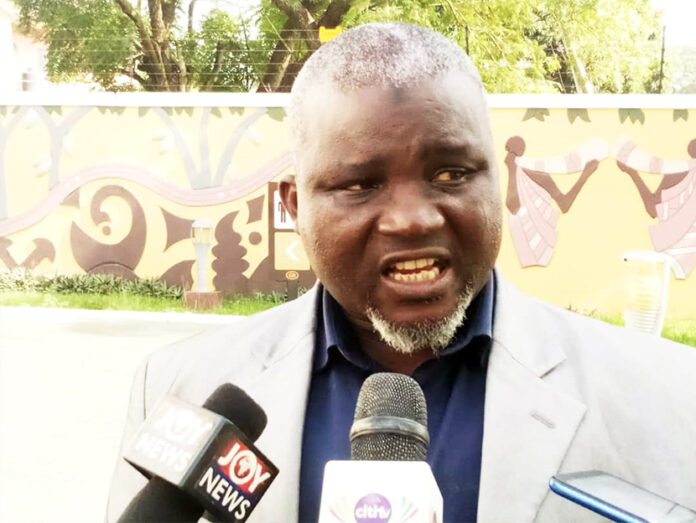An economist at the Kwame Nkrumah University of Science and Technology (KNUST), Dr. Yahuza Abdul Rahman, has urged the government to set up a National Recovery Fund in an attempt to restore the Ghanaian economy back to life.
Abdul Rahman is of the view that the Domestic Debt Restructuring Programme (DDEP), which is being sought after by the state, could throw the banking sector into chaos in the future.
He has subsequently implored the state that setting up such a fund is the surest way to mitigate the soaring debt the government is battling.
He has, therefore, asked government to appeal to Ghanaians to contribute generously to raise the needed funds that Ghana needs to settle her debt, instead of engaging in debt restructuring.

“They should set up a national recovery fund and appeal to the nation that everybody should generously contribute to that fund to raise the needed money now, instead of going for the debt restructuring that we are talking about,” the KNUST research fellow told the media, during a Regional Dialogue for Sustainable Economic Development programme held by the Economic Governance Platform (EGP) in Kumasi.
The EGP is a coalition of some of the most influential Civil Society Organisations that aims to champion prudent public financial management as well as socio-economic development in Ghana.
The function discussed issues such as governance and anti-corruption, macro-fiscal expenditure, the real sector, social spending, Information Communication Technology (ICT) and creative art.
It is made up of women, youth groups, farmers, civil society, representatives from academia, trade unions, trader associations, the Association of Ghana Industries (AGI) and the Ghana Medical Association.
In an effort to make the national recovery fund achievable, the KNUST academic posited that the government must show leadership by imploring its ministers to be committed to the fund.
“Government must show leadership by telling its appointees to commit to the fund and pay something from it, so that the general public will also commit to their attitude”.
According to Dr.Yahuza, if the government commits to it generously, the general public will also come in and be able to at least post what he described as a primary surplus.
“Government in the current budget said it was going to post a primary surplus of 0.5% when you are running an overall deficit of about -5.9; certainly, you would not be able to raise enough to pay,” he said.
In his welcome address, Nana Ankomah Yeboah, a traditional leader from the Asokore Mampong Traditional Council, who chaired the event, called for sustainable economic development, adding that this can only be supported by three pillars namely: economic information, economic growth, and economic development.
These pillars, according to Ankomah Yeboah are interlinked and, therefore, together.
Abdul Karim Mohammed, the Coordinator at EGP, told the media that EGP seeks to provide thoughts and recommendations for solutions on how Ghana can overcome the economic challenges.
“It is informed by the simple objective of getting citizens to contribute in finding solutions to the challenges Ghana is facing. We have been looking forward to a government to organize a national dialogue to identify a sustainable path way to get Ghana out of the current economic turmoil Ghana is facing,” he said.
Karim Mohammed, however, expressed worry about the posture of political leaders who do not give room to recommendations.
“All recommendations have yielded no results, so we have taken it upon ourselves to do this consultation, which has been zoned into three, namely the northern, middle and coastal sectors”.
Asked if Ghanaians have been patriotic enough to keep the government on its toes, he noted that Ghanaians are not angry enough.
“I think we have not held our government to account enough, and so governments and politicians have gotten away with a lot that should not have been the case, but increasingly, awareness is growing, people are getting to understand the issues and they are realising the need for them to be active participants in the national discourse.








